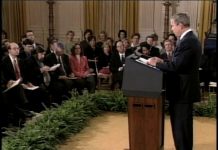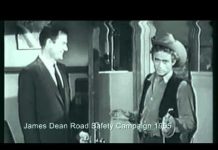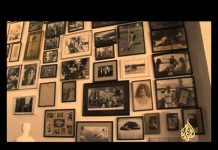In the shadows of the silver screen, an unlikely alliance has been forged between Hollywood and the Pentagon. Behind the glitz and glamour lies a captivating tale of collaboration and influence that may surprise many. For decades, the U.S. Army’s secret services have maintained close ties with American filmmakers, shaping the narrative of war on the big screen. This intriguing relationship reveals a carefully orchestrated dance between two seemingly disparate worlds.
One might assume that Hollywood operates independently, free from the clutches of military intervention. However, the reality is far more complex. Films like the iconic “Top Gun” were not merely cinematic endeavors; they were strategic collaborations orchestrated with the support and approval of the U.S. Army. Unbeknownst to most, a dedicated bureau known as the Film Liaison Office has been established to oversee the intricate relationship between the Pentagon, Capitol, and the world of filmmaking.
The Film Liaison Office holds a pivotal role, diligently studying the scripts of American war movies and evaluating their potential impact on military interests. Its mission is clear: to determine whether to extend support or withhold it, depending on the perceived benefit to the country’s military leaders. This behind-the-scenes influence reveals the extent to which Hollywood has become entangled in the web of military propaganda and strategic messaging.
The entwined history of Hollywood and the Pentagon dates back several decades. It is a history woven with intrigue, political maneuvering, and the pursuit of national interests. While the public enjoys the spectacle and escapism of war films, a covert dance plays out between filmmakers and military officials. The lines between entertainment and propaganda blur, raising questions about the true motives behind the stories we consume.
This dangerous liaison between Hollywood and the Pentagon raises important considerations about the power of media and its impact on public perception. As audiences flock to theaters and streaming platforms to indulge in on-screen adventures, it becomes increasingly vital to examine the underlying messages embedded within these narratives. The military-industrial complex’s reach extends far beyond the battlefield, infiltrating the very fabric of our popular culture.
While some may argue that this collaboration serves as a means of promoting patriotism and honoring the armed forces, others raise concerns about the potential manipulation and distortion of reality. How do these behind-the-scenes alliances shape our collective understanding of war, heroism, and national identity? Are we being presented with an authentic reflection of history, or are we unwittingly consuming a carefully crafted narrative that serves a larger agenda?
As we delve into the intricate web of Hollywood and the Pentagon’s dangerous liaison, we must approach the world of war films with a critical eye. The stories we encounter on the screen hold immense power in shaping our perceptions and influencing public opinion. It is crucial to peel back the layers of this complex relationship and question the narratives that are presented to us.
In an era where information is easily manipulated and truth often obscured, the intertwining of Hollywood and the Pentagon serves as a stark reminder of the inherent complexities of the entertainment industry. Behind the glitz and glamour lies a web of hidden agendas, political calculations, and the pursuit of influence. It is up to us, as viewers and consumers, to navigate this landscape with discernment and a keen awareness of the forces at play.

































